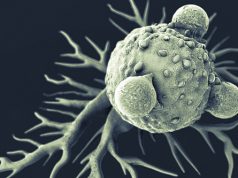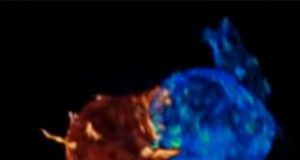Cerebral edema (brain swelling) is another very serious and often fatal adverse event encountered with CAR T treatment.
Eight cerebral edema-related deaths have been reported to date. Reports of 5 deaths due to cerebral edema came from the now shelved JUNO JCAR015 – ROCKET study of adult ALL patients. Two deaths were from the JUNO JCAR014 trial. One death was reported in the Kite ZUMA-1 Phase 2 safety studies, but all axicabtagene ciloleucel (KTE-C19) studies will continue as planned, as reported on May 8th, 2017.
Axicabtagene ciloleucel was submitted for FDA approval in March 2017 as treatment for patients with relapsed or refractory aggressive non-Hodgkin lymphoma (NHL) who are ineligible for autologous stem cell transplant (ASCT).
Urgent questions that need to be answered now are:
- What are the mechanisms of severe neurotoxicity and cerebral edema?
- How can these serious, sometimes fatal side effects be avoided or managed?
Previously, it was suggested the chemotherapy drug fludarabine, part of a pre-conditioning treatment given to patients before CAR T-cell infusions, was to blame. Some manufacturers removed fludarabine from their pre-conditioning treatments, but others are still using it. This explanation was proven wrong when fludarabine was removed from preconditioning regimens, and there were still patient deaths.
However, severe neurological symptoms can occur with fludarabine treatment, even in the absence of CAR T-cell therapy. Cytokine release syndrome (CRS) can also result in severe neurotoxicity. In addition, many patients that develop serious side effects such as cerebral edema are already high-risk patients with an extremely high tumor burden; they are at the end of their treatment options. The culprit of cerebral edema involving CAR T-cell therapy is not fully known, but regulators are keeping a close eye on it. Using tolicizumab (Actemra) earlier to head off CRS and researching ways to “turn off” CAR T-cell therapy when needed are under research to address safety concerns.





